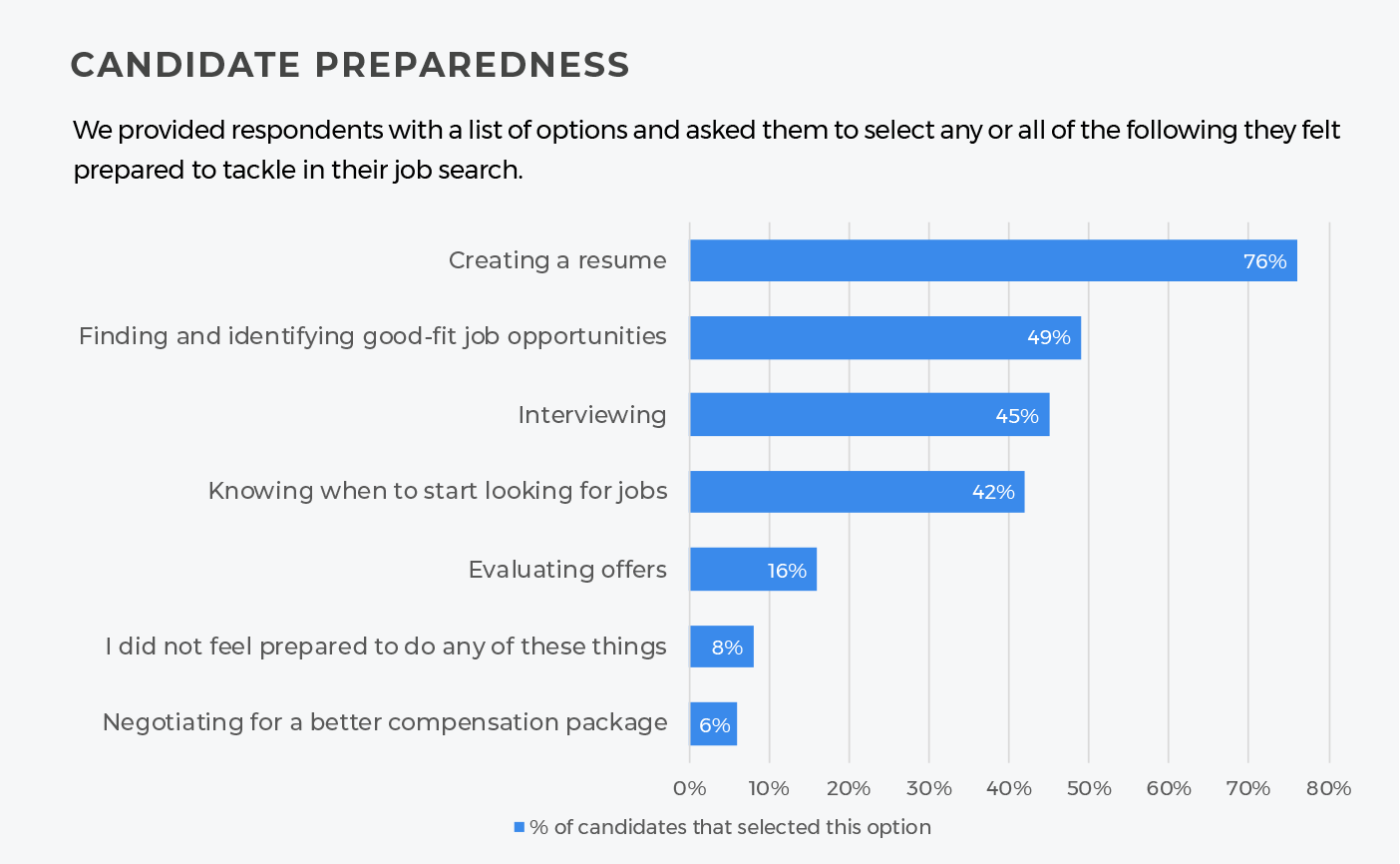Only 6% of Gen Z Job Seekers Feel Prepared to Negotiate for Better Compensation
Negotiating for a higher salary can make even the most seasoned professionals feel uncomfortable. So it’s no wonder that most entry-level candidates feel unprepared to negotiate for a better compensation package when evaluating a job offer.
In RippleMatch’s 2019 report The State of the Gen Z Job Search, we surveyed 1,100 class of 2019 graduates, all hailing from a diverse group of universities from Ivy Leagues to large public universities to small private institutions. The group of respondents were all verified RippleMatch users, but they came from varying academic backgrounds and are now employed in a wide range of roles and industries, from technology to healthcare.
Through our survey, we found that only 6% of our Gen Z survey respondents felt prepared to negotiate for a better compensation package and only 16% felt prepared to evaluate their offers in general.

Candidate preparedness appears to decrease with each stage of the job search. Most job seekers feel comfortable presenting themselves to potential employers in the initial application stage – 76% of respondents felt prepared to create a resume. That number drops between 40-50% for actions like finding and identifying good-fit opportunities, knowing when to start searching for jobs, and actually going through with the interview. By the time candidates get to the end of the hiring process and have to face assessing an offer and asking for better compensation if necessary, most no longer feel prepared to tackle what’s in front of them.
This phenomenon is not unique to Gen Z – previous surveys have shown that new grads (and everyone else) have traditionally been hesitant to negotiate for higher compensation. A 2015 study by NerdWallet found that only 38% of new graduates who entered the job market between 2012-2015 negotiated with their employer upon receiving a job offer. Another survey from Robert Half revealed that 45% of workers between the ages of 18-34 tried to negotiate for a higher salary during their last job offer, and that percentage dropped even lower for older workers.
It’s clear that new grads aren’t properly equipped with the tools and knowledge to evaluate their offers and develop a negotiation strategy, a problem that may follow them into their careers later on. Career centers and other learning & development programs that serve soon-to-be grads may want to offer classes on offer evaluation and negotiation to ensure that tomorrow’s professionals not only land a job, but know if they’re accepting the best possible offer.
Want to know how Gen Z candidates are faring during COVID-19? Download our report here to understand how employment was affected during the onset of COVID-19, and download our report The Gen Z Job Seeker to understand how this generation's approach to the job search has fundamentally changed.





